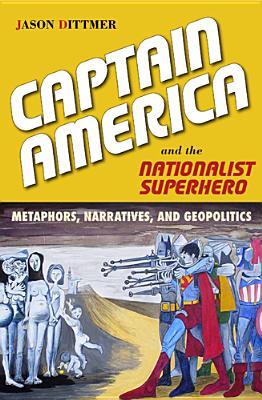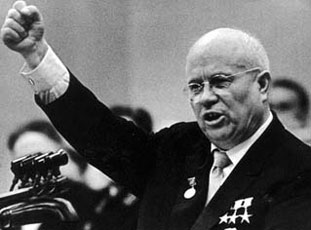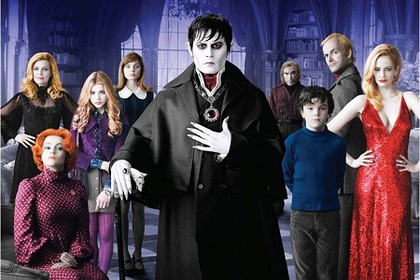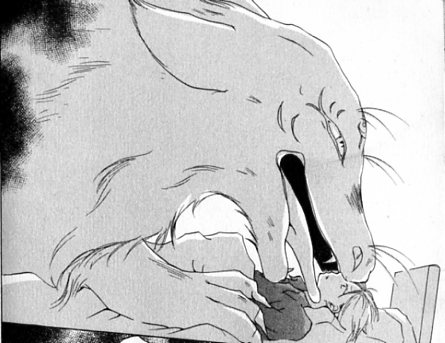The trouble starts when I get onto the New Jersey Turnpike. That’s the moment my memory of Christmas 2007 begins to break down. The night before, the phone call from Mom—we’re talking your Dad to the emergency room—the mad scramble to pack my bags while my girlfriend calls rent-a-car companies, the phone calls to and from various relatives, learning words like gangrene and phrases like septic shock, all of that remains intact, crystalline. Ditto the moment two days later when Dad says he wants to leave Christian Science behind and I breathe a sigh of relief because he’s finally going to stop relying on prayer to heal him.
But the car ride from Brooklyn to DC is one of many moments—perhaps significant, who can tell—that I cannot remember. The ride down isn’t even a blur; it’s a snapshot:
The rest of it is gone. Removed, like my father’s leg.
I am terrified of this empty space in my mind.
If there’s one thing I hold onto with some sense of pride, it’s the flypaper of my memory. When it works, anything that zooms past it gets stuck. How, then, to explain its failure as I tendril my way back into my recent past? Perhaps my memory has become corrupted. Abort/Retry/Ignore.
Memory— like many words in our polyglot bastard tongue— comes from many sources. Anglo-norman. Old French. Classical Latin. Eventually we arrive at an unprintable Ancient Greek word meaning baneful or fastidious. This suggests that even in classical times, the Poindexters who remembered everything weren’t exactly popular.
Let me try this from memory:
To be or not to be, that is the question
Whether ‘tis nobler in the mind to suffer
The slings and arrows of outrageous fortune
Or to take arms against a sea of troubles
And by opposing end them.
To die, to sleep, no more and…
That’s as far as I can get, and I’m fairly sure some of the above is wrong. Perhaps I’m not as good at this whole remembering thing as I thought. Maybe those facts, figures, Simpsons quotes and Monty Python routines that I love to trot out are similarly wrong.
Perhaps were I still a professional actor, I could remember the lines from Hamlet or what I did in our rented car on the New Jersey Turnpike. When you perform in front of school kids, they always want to know how long it took you to rehearse and how you memorize all those lines. I phone an acquaintance of mine, the actor James Urbaniak, to talk about his methods.
When Hamlet’s father’s ghost—also named Hamlet, sorry English students everywhere—appears to the distraught Prince, he charges him with three tasks. The first is vengeance. The second is not to harm his mother. The third, often forgotten, is remember me.
Remember. What are we to make of the peculiar, troublesome “b” when memory shifts to the past tense? Re-member, not re-memor. To reincorporate something into the group, the whole. To take the distinct particle and add it to the organism. To put back together something that has been broken. When Christ Jesus takes the ear his disciple has cut off of one of his tormenters and rejoins it to the man’s face, he has remembered the ear. A member is part of an organization, a collection, a body, whether that’s the physical body or the body politic. It’s also a penis, of course.
Urbaniak’s method for memorization involves linking difficult lines to images. It’s very instinctive, he tells me, the first weird image, and frankly, those images can get very sexual and very scatological. The method comes from a television infomercial he happened to catch as a child about how to remember names.
Shouldn’t the opposite of remember be dismember, rather than forget? Perhaps dismember feels too much like a choice, the choosing to separate a person from a group, or a limb from a body. Thinking of forgetting as an amputation makes it somehow moral. The Latin word amputare refers specifically to the chopping off of a thief’s hands. Our language, then, implies sin, a crime needing to be punished. The crime of joining the army. Or having diabetes. Or relying on God.
On the phone, James pulls out a script of Thom Pain (based on nothing) a one-man show he performed in New York. He finds a particularly abstruse line: Picture the readiness, the stillness, the virtuosity. He walks me through translating this into an image to help him remember. I might first imagine a picture frame. “Picture.” And in that picture is me. And I’m surrounded by books reading. Reading. And if I see that, I would remember that r-e-a-d was for “Readiness”. “Stillness”. So I’m frozen while reading. It’s a picture of me reading and I’m frozen, maybe I’m sitting on ice. Frozen would remind me of stillness. “Virtuosity.” And meanwhile someone is behind me playing the violin. He bursts into laughter, amazed at the workings of the mind and how we trick it into doing what we need it to do.
If you trace the path of the word “forget” it actually means to lose one’s hold. Your butterfingers mind slips on the handles of both the things you want to keep and the things you want to lose. Unlike dismember, forget is indiscriminate, is involuntary, is amoral.
Remember me the Ghost charges, the father asks of the dutiful, loving son. In keeping this oath, Hamlet will come to reach all the way back through memory’s roots, to trace “memory” past its ancient Greek banefulness to the delightful Sanskrit smri, the mother of both memory and witness. It means martyr.
After turning one line into an image, James then links it to the lines that surround it, forming a nonsense narrative that takes him through the script. Let’s say prior to the line about the readiness, I had another line that was to be or not to be. I might picture two bees and then they’re shot, so they don’t exist anymore. So two bees and they’re not. And then their bodies fall on the frozen lake where I’m reading.
The most surprising aspect of James’ memorization trick is that he needs no help in remembering the images themselves. I’m able to conjure up these images very very quickly because I can see them as bizarre pictures. I see the bees on the ice and see the picture and boom, I’m there, as opposed to seeing a sequence of words. The memorization per se is just an early technical necessity. It has nothing to do with acting whatsoever. And then eventually with acting, you figure out why the character is saying these things. Memorization then is a purely technical first step. Real memory involves actions and motivations, the building blocks of character, including the fussy, discomfiting characters of ourselves.
Here’s how Hamlet responds to his charge to remember his father:
Yea, from the table of my memory
I’ll wipe away all trivial fond records,
All saws of books, all forms, all pressures past,
That youth and observation copied there;
And thy commandment all alone shall live
Within the book and volume of my brain,
Unmix’d with baser matter: yes, by heaven!
That passage isn’t from memory. I googled it. Google substitutes for memory, the way Facebook substitutes for The Director’s list. No one knows how these online replacements will impact on our memory. Perhaps in the future there will be no lacunae, and thus no creative bridging of these gaps, and thus no art. The Universe, after all, is mostly made up of empty space.
Hamlet promises his dead father that he will clear space in the attic of his brain by forgetting all the unnecessary information of his youth. He will sculpt himself into a First Corinthians kind of man. He will stop speaking as a child, understanding as a child, thinking as a child and, as St. Paul instructed, he will put away childish things. This is Hamlet’s ultimate act of love, to transform himself into a monument, which in English means anything that preserves a memory, but in Welsh means a graveyard.
Science teaches us that forgetting can be an act of self-defense, but art teaches us that memory is an act of love. I want so desperately to remember that car ride, to remember every minute spent in waiting rooms, every thought and word and deed of the weeks surrounding Christmas of that year. Yet I have to look at a calendar to recall what year it was. Time and the workings of the human mind wrap weights around all the locked safes and drop them into the uttermost parts of the sea.
When I was growing up, I learned in Sunday School the tenants of my family’s faith. I learned that these corporeal, finite, decaying bodies of ours did not exist. I learned that the real me was perfect. I learned that the real me was in Heaven, with the Father/Mother God. I learned that God is Love, God is perfect, God is all-powerful, all-seeing, all-knowing, all-acting, all-wise, and made us in His image. I learned that the limits of the self were an illusion, called Mortal Mind, that this Mortal Mind was responsible for illness, that treating the illusion through medicine reinforced its existence. I learned that if we studied hard enough, prayed hard enough, attuned ourselves to God, we could realize our real perfection and leave Mortal Mind behind, the way Jesus did when he ascended to heaven. Verily, verily, I say unto you, He that believeth on me, the works that I do shall he do also; and greater works than these shall he do; because I go unto my Father.
Perhaps this is why I cannot shake the belief that my inability to remember even trivial details is a failure. Not a failure of the mind, like the Director’s deleted words, or a failure of art like James stumbling to recall a memory palace of images, but a failure of love.










